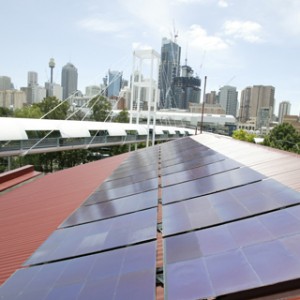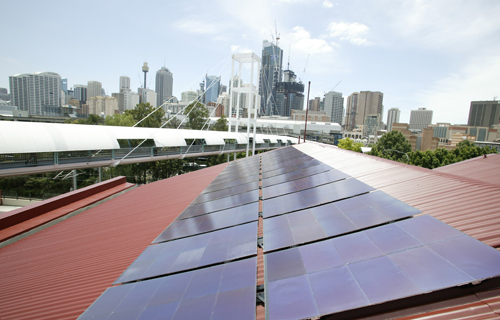Recent research suggests that solar energy within Australia is fast becoming the nation’s preferred energy source as opposed to the coal generated energy system.
With some of the best conditions in the world for sun energy production, studies have further revealed various advantages that positively impact both health and the environment.
It is additionally justified to deliver minimal drawbacks compared to fossil fuels in terms of cost and sustainability.
A recent survey by Ipsos Australia involving 1200 people from across the country revealed that Australians prefer solar powered rooftops with a staggering 87 per cent of the respondents supporting them.
Lagging behind are the large-scale solar farms which are backed by 78 per cent, and hydro and wind farms tied in third place with 72 per cent in favour of them.
Tidal and geothermal energy came at 52 per cent and 45 per cent respectively, and nuclear energy came at 26 per cent. However the most suprising result was coal energy, which finished last with support of only a small 23 per cent of people surveyed.
Coal energy had the backing of the past government coalition, and Australia had earned the ire of various nations across the globe in its stance on fossil fuels in the past years.
It has been widely criticized for its coal and coal seam gas utilization (CSG) as it is deemed to pose great hazards to the health and environment.
Today, statistics show that six out of 10 Aussies see CSG to be a damaging energy source.
The survey’s main aim was to positively identify some of the potential barriers in large-scale solar farms and how to create a solid move to ensure its acceptance in communities.
It was funded by the federal Australian Renewable Energy Agency.
According to Ipsos Research Director Jennifer Brook,
“Communities can be supportive to large-scale solar farm facilities but backing from them requires a clear communication from project stakeholders to ensure its efficiency. It is a must to present details on potential employment opportunities, project timelines, and information on the area of land required in establishing a particular large-scale solar facility. These important factors when clearly communicated will establish huge community support.”
In the recent survey, 63 per cent thought the use of solar farms delivered a positive impact in curbing global warming, the other 53 per cent were still unsure on its impact on the local environment.
Futhermore, one in three respondents or some 30 per cent are quite sure that these solar plants will create a negative visual impact on local panorama.
The Ipsos survey is a separate report from the recently released Grattan Institute study, which found small-scale solar photovoltaic systems in homes to cost $9 billion more than its perceived benefits.
The said study pushed large-scale solar energy farms to be on top in terms of efficiency as practiced in other countries like Germany and Spain.
Ipsos respondents on the other hand, backed up this claim with more than 38 per cent pushing for more research on solar farms as a clean energy source.
With the Abbott government and Labour coalition agreement on cutting stipulated Renewable Energy Target to approximately 20 per cent by 2020, the future of Australia’s solar generating systems is promising.

